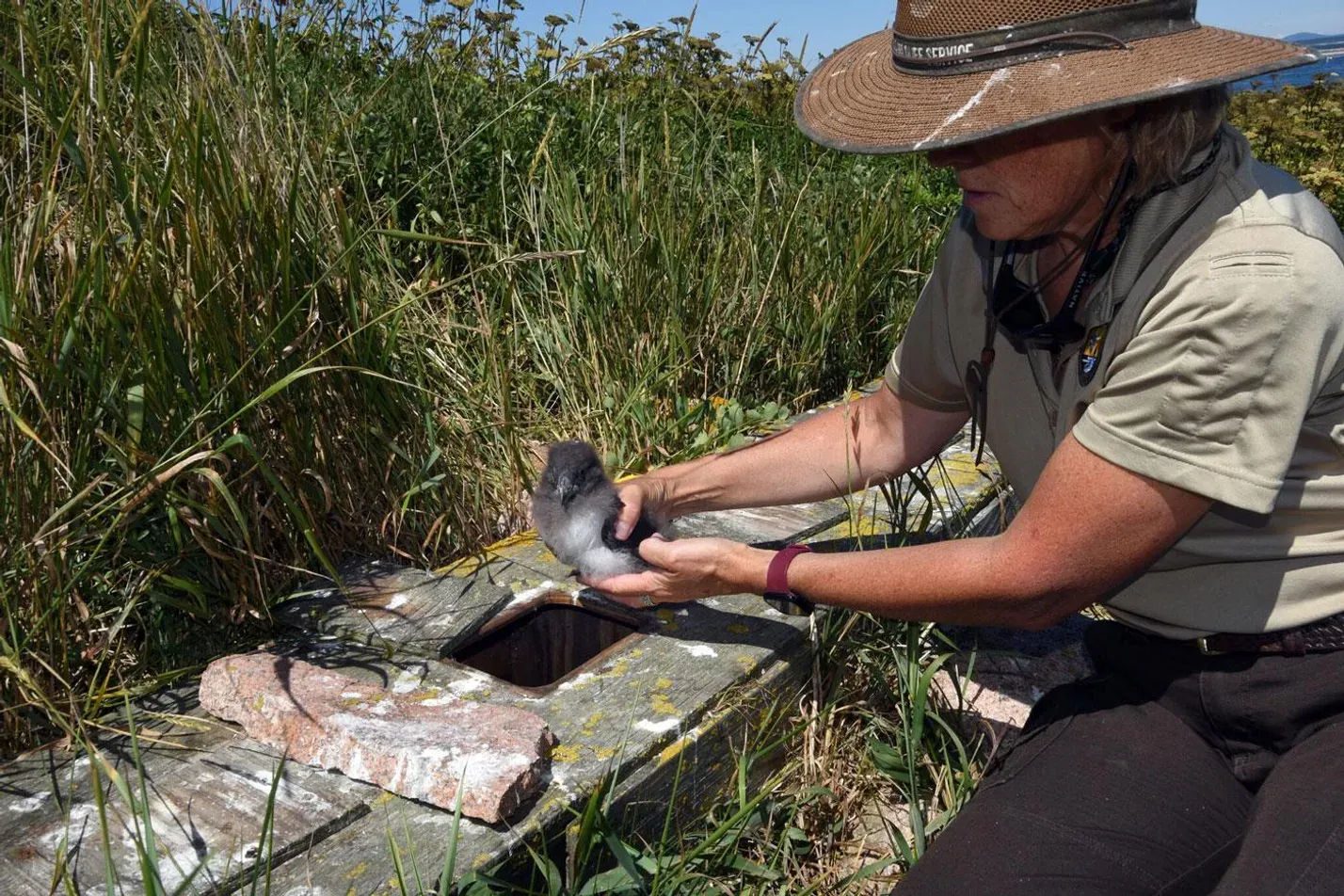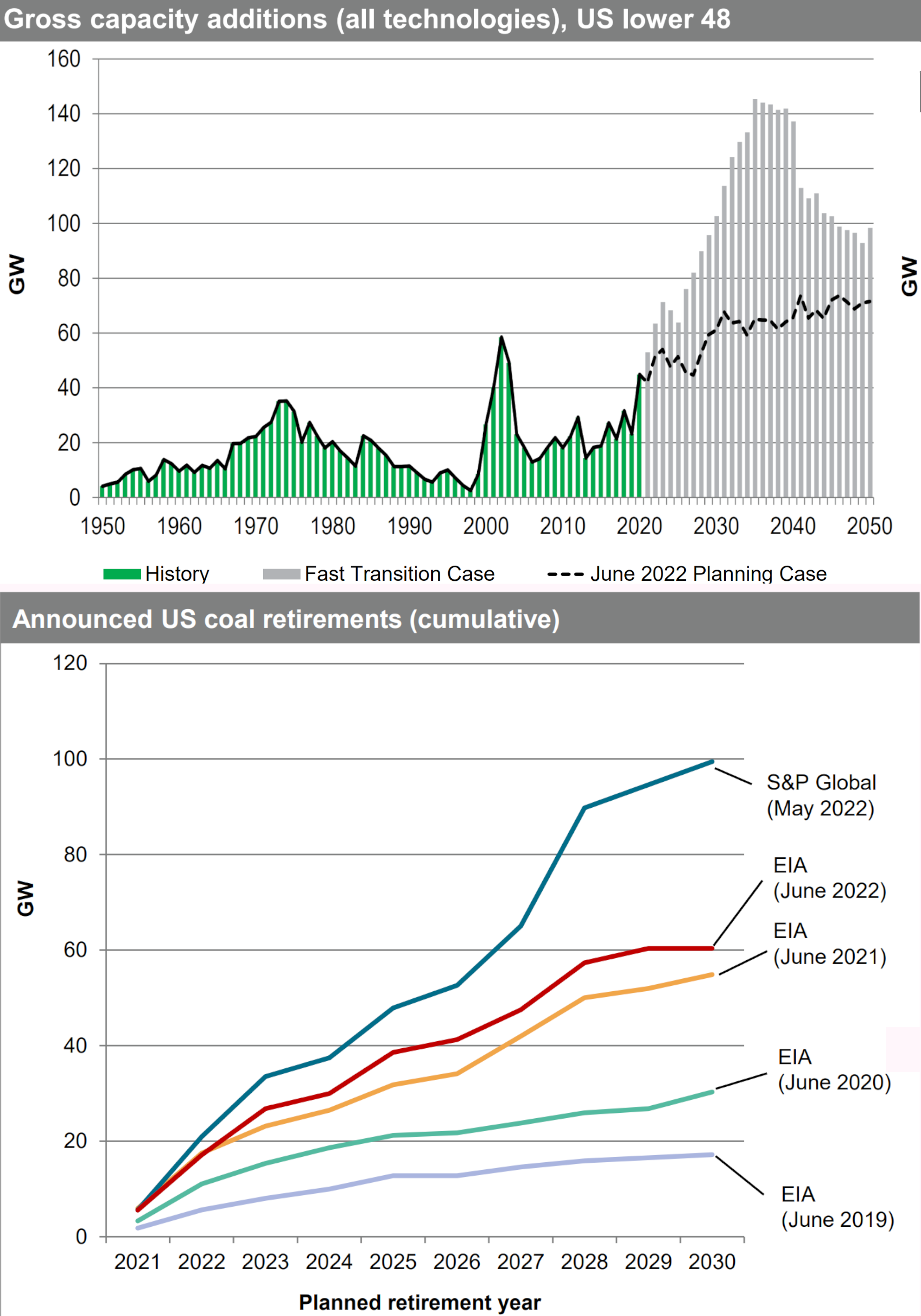This is our fortnightly roundup of good news from around the world. If you'd like to get this in your inbox, you can subscribe for free below.
Get good news in your inboxGood news you probably didn't hear about
Countries in southeast Asia have made substantial progress towards eliminating measles, with 5 out of 11 achieving elimination in the last two decades. Measles cases declined by 92% between 2002 and 2020, and the death rate decreased by 97% - saving an estimated 9.3 million lives during this period. WHO
Maternal mortality rates in Zimbabwe declined from 657 deaths per 100,000 births in 2007, to 217 per 100,000 births in 2019. Significant improvements in maternal, neonatal and child health as well as interventions to reduce HIV, malaria and TB are working. Egypt and South Africa have also seen declines. BMJ
A malaria vaccine with 'world-changing' potential has been developed by scientists at Oxford, who expect to roll it out next year after trials showed up to 80% protection from the world's deadly animal. A deal has already been reached to manufacture 100 million doses a year. The charity Malaria No More says it might mean children dying from malaria could end "in our lifetimes". BBC
Togo has become the first country to eliminate four neglected tropical diseases: dracunculiasis, lymphatic filariasis, human African trypanosomiasis and trachoma. All four were eliminated in just eleven years. These diseases are symptoms of extreme poverty, and lifting their burden will lead to social and economic benefits. WHO
This is an outstanding achievement and a gift not only for the people of Togo today but for generations to come.
Dr Tedros Adhanom Ghebreyesus, WHO Director General

Iran is on the cusp of eradicating illiteracy, with the rate now surpassing 98%, a huge leap from just 48% in the 1970s. The country has also closed its literacy gender gap from 23% in 1976 to less than 6.1% in 2020. Meanwhile, government efforts in Cambodia have increased the literacy rate among adults from 77.6% in 2008 to 87.8% in 2020.
In its 75 years since independence, India has made astounding progress in public healthcare: eradicating both polio and smallpox, decreasing HIV and malaria, and reducing the infant mortality rate from a harrowing 200/1,000 births in the 1940s to just over 27 per 1,000 births today. Healthcare efforts have more than doubled average life expectancy from 32 years in 1947 to 70 years in 2022. Times Now
Fewer families in India are using prenatal testing to ensure the birth of sons rather than daughters. The imbalance of boys to girls peaked in 2011, with 111 boys per 100 girls. Government efforts to curb sex selection and cultural shifts over the past decade are starting to normalise the balance with 108 boys per 100 girls recorded in 2021. Pew
India’s ambitious Jal Jeevan Mission, which aims to connect piped water to 192 million households by 2024, is over halfway to meeting its goal, having reached a 100 million homes. The initiative is already reaping huge benefits in public health, with a 66% decline in water-borne diseases in areas provided with clean drinking water. Hindustan Times

Singapore's controversial 377A law has been repealed, effectively decriminalizing homosexuality. While there is still a long way to go in fighting discrimination, the landmark decision marks a significant shift in attitude for a country where LGBTQ+ rights were completely taboo a few decades ago. BBC
After years of advocacy, Vietnam has taken a big step forward in LGBTQ+ rights, with the government declaring that being gay, bisexual, or transgender is not a disease and urging practitioners to end discrimination in medical care. Meanwhile Canada has joined the UK, Ireland, and the Netherlands in creating a national LGBTQ+ action plan, pledging $100 million to support community groups.
Historic legislation in Spain with the passing of the 'only yes means yes' law. Its the result of one woman's campaign after she was raped by five men during the 2016 bull-running festival in Pamplona. Under the new law, sexual consent must be affirmative and cannot be assumed by default or silence. Guardian
The tides of public opinion are shifting in America, with 66% of voters now supporting a woman's right to choose, up from 55% in March. Approval of interracial marriage continues to climb too. According to Gallup, it's reached a new high of 94% - up from just 4% when the poll was first taken in 1958.
Attitudes can and do change, sometimes in less than a generation.

Smoking in the United States has reached its lowest levels ever, with just 11% of people saying they now smoke cigarettes. Good news, because smoking is the cause of about 20% of all cancers, and lung cancer is the leading cause of all cancer deaths. The decline in smoking is one of the main reasons cancer deaths have fallen by 27% in the last two decades.
Japan’s roads are now among the safest in the world, recording less than 3,000 fatalities in 2021- a more than five fold decrease since the 1970s. The dramatic decline is attributed to the country’s innovative approach to public transport, including the world’s first bullet trains, no on-street parking in neighbourhoods and the introduction of microcars. Bloomberg
The only home we've ever known
Did you know that the Inflation Reduction Act contains the largest single round of funding for conservation in the history of the United States? Audubon
- $4 billion for drought resilience and water conservation in the American West.
- $2 billion for wildfire risk reduction, including funds for nature-based solutions like beavers, to restore natural hydrology and reconnect river systems.
- $450 million to help private landowners manage forests and to provide incentives to conserve more forest ecosystems.
- $220 million for tribal climate resilience and $550 million for disadvantaged communities to plan, design, and build water projects that create or improve reliable access to water.
- $2 billion for forest management to make national forests more resilient to climate change, and to provide important bird habitat and ecosystem services like water quality, flood control, and carbon storage.
- $1.5 billion in grants for urban and community forestry.
- Hundreds of millions of dollars for wetland conservation and restoration.
- $121 million for rebuilding and restoring parts of the National Wildlife Refuge System and state wildlife areas.
- $2 billion for forest management to make national forests more resilient to stressors like climate change, and provide important bird habitat and ecosystem services like water quality, flood control, and carbon storage.
- $2.6 billion dollars for coastal protection and restoration.
- $20 billion for voluntary conservation programs on private lands throughout the United States.
- Not bad huh?

Two years ago, the US Congress passed the Great American Outdoors Act, a bipartisan victory decades in the making. Since then, more than 220 repair projects across nine national parks from Alcatraz to Yosemite have been funded to upgrade trails and amenities, contributing $3.8 billion to economic output and creating over 36,000 jobs. NPCA
Florida has acquired nearly 20,000 acres of land for conservation, rounding off the Florida Wildlife Corridor, a recently designated network of connected lands that provide crucial habitat for wildlife. South Carolina is linking ecologically significant landscapes across its Hampton and Jasper counties to create a 12,000 acre stretch of protected land, and in New Mexico, a collaboration between private landowners, government, and conservationists has protected over 54,000 acres.
A 30-year marine conservation effort in the Virgin Islands has helped recover the red hind, a species of grouper in the Caribbean. Fishing restrictions and seasonal closures of spawning sites have resulted in a 35% increase in average fish size and recovered the population to a sustainable benchmark. Phys
In the 19th century, puffins were hunted to extinction on islands off the coast of Maine. In 1981, conservationists started the world’s first restoration of a seabird to habitats where humans had killed it off. Today, there are more than 1,300 pairs of puffins across several islands - the only state in the US where the bird breeds. EHN

Indonesia has pledged to increase its marine protected areas by from 284,000 km2 to 325,000 km2 by 2030. The country is home to some of the most diverse marine life on the planet, especially its corals and reef fish. By 2045, the government plans to triple coverage to 975,000 km2. Mongabay
362,000 hectares of national park and freehold land in Queensland’s Cape York have been returned to its traditional owners, heralding a “new era” for the peninsula. Over the past 27 years the Queensland government has handed back over 4.3 million hectares of land, an area the size of Switzerland. Guardian
Farmers and landowners across England are leading a ‘once in a generation’ landscape recovery scheme to revive biodiversity in 22 areas, while still producing food. Collectively, the project aims to restore nearly 700km of rivers across farmed and rural landscapes and revive 263 species including water vole, otter, pine marten, lapwing, great crested newt, European eel, and marsh fritillary. Guardian
The key is this is a collaboration with farmers. What I find really encouraging is farmers, landowners and environmental NGOs working together on solutions that work at a local landscape level so we can design something that’s fit for purpose and fit for the future.
Jake Fiennes, Conservation Director, Holkham Estate
In the past decade, Gabon has increased its elephant population by over a third to 95,000 animals. The success is attributed to tough penalties for poachers and smugglers and legislation to protect Gabon’s equatorial rainforest, which boasts the largest populations of gorillas and forest elephants in the world. Times

16 Indigenous communities in drought-stricken parts of Mexico have created over 579 water infrastructure projects, including absorption wells and water pans, to help manage and harvest water locally. Initiated by a handful of women in 2005, the projects are capturing enough water to regenerate soils for crops and boosting the return of wild fauna and flora. Mongabay
In 1986, the last remaining 22 Californian condors were captured from the wild in a drastic attempt to save them from rodenticide and environmental toxins. In this case, human intervention paid off. Thanks to the collaboration of government agencies, scientists, and indigenous tribes, 537 birds now soar over North America today, 334 of them in the wild. RTBC
New York’s waterways are the cleanest they’ve been in over a century and the animals are coming back. Significant numbers of humpback, fin and right whales have started appearing along with bottlenose dolphins, spinner and hammerhead sharks, seals, blue crabs, seahorses, and oysters which vanished decades ago. Economist
“A massive victory for the planet.” A South African court has banned Shell from searching for oil and gas reserves along the country’s Wild Coast. Conservation groups took the oil giant to court after the government renewed exploration rights in 2021. 6,000 km of coastline is now protected, which is good news for humpback whales that migrate to the waters each year to mate and rear calves. Euro News
Incredibly critical victory for people and the planet. The victory against #Shell during this climate emergency is a crucial one for the future of humanity. The court reaffirmed the importance of community consultation and consent and the connection to land and ocean pic.twitter.com/aclEHXpcTw
— pooven moodley (@POOVENMOODLEY) September 1, 2022
Saving the world is cheaper than ruining it
One of the hallmarks of the global clean energy revolution is the consistent inability of most journalists to predict its speed. Case in point: the polysilicon sector is now betting on annual sales of 940GW of solar by 2025. That's 5.8% of global electricity demand, every year, or the equivalent of the world’s entire fleet of 438 nuclear plants every 20 months. Bloomberg
It's not just that journalists underestimate clean energy, it's that they consistently overestimate coal too. Remember the US coal surge last year? It's already finished. And in China, coal consumption fell for 12 straight months between June 2021 and June 2022, before ticking up in July and August due to extreme weather. Guess what people hear about? Carbon Brief
California, the world’s fifth-largest economy, just passed its most aggressive ever climate change legislation. Lawmakers approved a record $54 billion in climate spending and passed sweeping new restrictions on oil and gas drilling as well as a mandate that California stop adding carbon dioxide to the atmosphere by 2045. NYT
California regulators have also officially put in place a plan to ban the sale of gasoline-powered cars by 2035. This is big. Not only is California the largest auto market in the United States, but more than a dozen other states typically follow its lead when setting standards. Officials in New York, Washington, Oregon and Rhode Island already say they're planning to implement similar regulations. CNN
In the aftermath of the Inflation Reduction Act, analysts are now predicting 'staggering' amounts of clean energy coming online in the United States. Wind, solar and batteries account for over 95% of capacity in interconnection queues, and check out the new forecasts for coal plant retirements too. Ouch. S&P

Global offshore wind is on a tear. Almost 7GW went into operation in the first half of this year, a close to five fold increase on last year. 33 offshore farms started operations, almost all of them in China, plus a few in Vietnam and Europe. China now has 24.9GW of installed capacity. Renew Biz
Europe's doing its best to catch up. Eight EU countries bordering the Baltic Sea have agreed to increase their offshore wind power generation capacity seven-fold by 2030 in order to reduce dependency on Russian energy. Chalk up another one for everyone's favourite climate hero in the Kremlin. Reuters
Solar installations in India rose by 59% in the first half of this year, to a record 7.2 GW, bringing the country's total installed capacity to 57 GW. "Even with mounting challenges from supply constraints and rising costs, India had its best quarter and first half ever for solar." Economic Times
Solar is now regularly outcompeting coal on the Australian grid in winter, and it's happening earlier every year. In the process, the country's coal fleet has been revealed as neither cheap nor reliable. Next big milestone should arrive in a few years, when wind and solar are producing 100% of grid demand at any one time. RE
Europe has smashed all its solar records this summer, generating a record 12% of electricity between May and August, up from 9% during the same period last year. Those solar panels saved the continent €29bn in fossil gas imports. The numbers are astonishing - since 2018, Poland has increased solar generation by a factor of 26, and Finland and Hungary have seen five-fold increases. Ember

Four more global insurance providers have ruled out support for the East African Crude Oil Pipeline, bringing the total number to 12. The pipeline poses a threat not just to climate goals, but to ecosystems in east Africa too. This move is significant, because it won't go ahead without substantial levels of international insurance. StopEACOP
France has become the first country in the world to ban fossil fuel advertising. Under new rules, supermarkets cannot run ads for cheap petrol, for instance, and ads for natural gas will be banned too. Activists say it doesn't go far enough - but we would argue that the symbolism is really what matters here, showing that fossil fuels are heading the same way as big tobacco. Euronews
Electric vehicle batteries are lasting far longer than predicted, meaning there's plenty of life after use as backup storage in big solar arrays. The big worry was that all the batteries would end up in landfill, but it now looks like the opposite problem is taking shape - there's more recycling capacity coming online than there is battery scrap available. Bloomberg
A total of $15 billion of investment into four US gigafactories has been announced in the last two months, enough to more than double the country's entire current production capacity. The announcements, from Panasonic, Honda and Toyota, will increase forecast US battery production capacity by 60% by 2025.
EV adoption in the US is happening for quicker than anyone predicted, with sales projections for 2030 more than doubling to 53%. Ford, for example, has seen a four-fold increase in EV sales, and cannot keep up with demand for its F-150 electric trucks, which are being sold, on average, eight days after hitting dealerships, the fastest for any current Ford vehicle.
Volkswagen, the only legacy carmaker in the top 12 for global EV sales, has a new CEO, Oliver Blume. Here's what he says about the company's electrification plans. "I am a fan of e-mobility and I stand by this path. We will keep the current pace and, where possible, increase it." Reuters
And finally, if you're still wondering what a heat pump is, this might help. Basically - they're magic.

That's it for this edition, thanks for reading. We'll see our paid members in a week, and the rest of you in a fortnight.
Much love,
FC HQ






